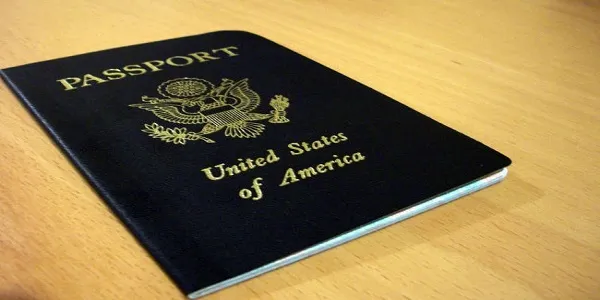Are you dreaming of embarking on an unforgettable journey through the vibrant streets of India? From the majestic Taj Mahal to the bustling markets and mouthwatering cuisine, this diverse country offers a multitude of incredible experiences. However, before you start planning your itinerary and packing your bags, there’s one crucial aspect that should be at the top of your checklist: obtaining a visa. In this blog post, we will explore why securing a visa should be your first priority when visiting India. So sit back, relax, and let us guide you through the process to ensure your adventure is seamless from start to finish! INDIAN VISA FOR US CITIZENS
Getting a visa to visit India can be a daunting task for anyone. Here are the top reasons why obtaining one should be your first priority.
If you’re planning a trip to India, obtaining a visa should be your first priority. Here are the top reasons why:
1. India is a populous country with a wide range of climates and terrain. Not all parts of the country are hospitable to tourists. If you don’t have a valid visa, you could be subject to arrest or deportation.
2. Visa requirements can change at any time, without warning. Make sure you check the latest regulations before traveling to India.
3. The Indian embassy or consulate in your home country may not be up-to-date on all current visa requirements. You’ll waste time and money trying to obtain a visa from an office that doesn’t understand the situation. INDIAN VISA FOR BULGARIAN CITIZENS
4. If you’re denied entry to India because of a lack of a valid visa, there’s no guarantee that you’ll be able to get one on arrival in India. Many foreign nationals have been refused entry at airports even after having presented their visas in good form at the embassy or consulate abroad.
If you are planning on traveling to India, it is important that you obtain a visa in advance. Visas can be obtained from the Indian embassy or consulate in your home country or at the airport before departure. There are three types of visas that are available to tourists: A Tourist Visa, A Business Visa, and A Student Visa.
To obtain a tourist visa, you will need to provide proof of your travel plans and sufficient funds to cover your stay in India. The length of the visa depends on the type of visa you are applying for and can range from 30 days up to six months. You will also need to provide a photocopy of your passport and a photograph. If you are applying for a business visa, you will need to provide evidence of your company’s existence and an invitation letter from an Indian company owner or senior officer. You will also need to provide evidence that you have funding for your stay in India and a photocopy of your passport. To obtain a student visa, you will need to provide proof that you are attending an accredited school in India and a photocopy of your passport.
Common Requirements for Indian Visas
India is a popular tourist destination for both domestic and international travelers. While all visitors should verify visa requirements with the Indian Embassy or Consulate in their home country, some common requirements for Indian visas include:
– A valid passport
– A return ticket
– Proof of sufficient funds to cover your stay in India (more than USD200 per day)
– Proof of hotel reservation in case you are staying in a hotel
– Your family member(s) must also have a valid Indian visa if they will be accompanying you to India
Tips for Successfully Applying for a Visa
Obtaining a visa to visit India is one of the first steps you should take when planning your trip. Here are some tips for ensuring a successful application:
1. Make sure you have all the necessary documents. This includes your passport, visa application form, and photos.
2. Submit your application as early as possible. The more time you have to prepare, the easier your application will be.
3. Follow the instructions carefully. Incorrect or missing information can delay or even prevent your visa application from being processed.
4. Stay calm and patience during the process. There may be some wait times, but don’t give up hope – eventually your application will be processed and you’ll be able to travel to India!
Conclusion
Travelling to India can be an amazing experience, but it is important to remember that not all of the country is safe. If you are intending on visiting any of the more dangerous areas, such as Delhi or Mumbai, you should make sure to obtain a visa in advance. This will save you time and hassle when travelling to India and ensure that your trip goes off without a hitch.


